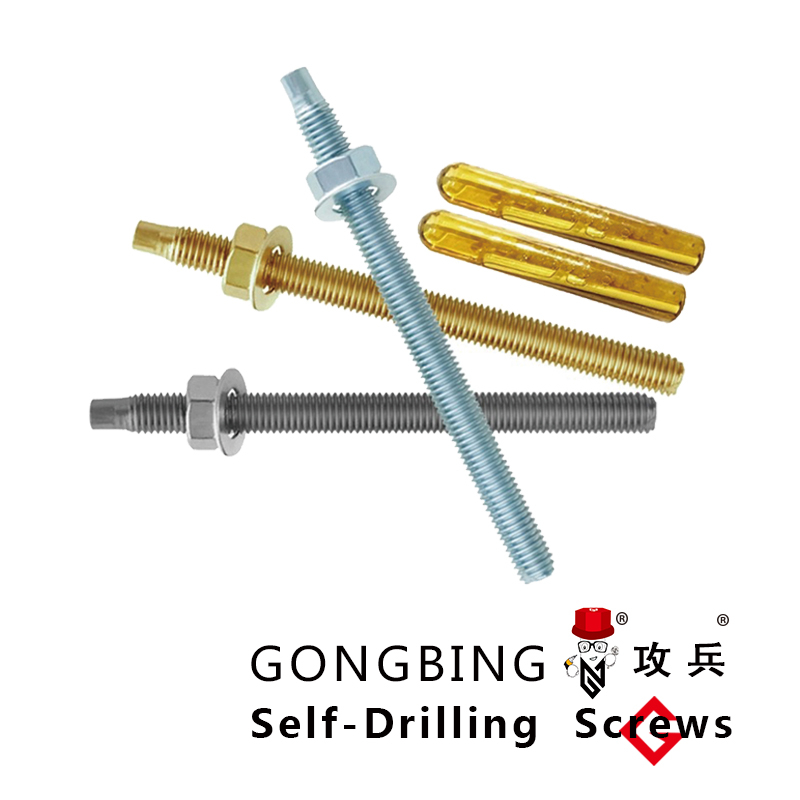full threaded studs
Understanding Full Threaded Studs Features and Applications
Full threaded studs are an essential component in various engineering and construction applications, serving as a connecting device that provides structural support and integrity. Unlike standard bolts, which have unthreaded sections, full threaded studs possess threads along their entire length. This feature makes them particularly versatile for a wide range of uses.
Design and Features
The primary design aspect that sets full threaded studs apart is their continuous threading. This design feature allows for greater engagement with nuts or other threaded components, which can improve load distribution and enhance overall stability. The studs are typically made from high-strength materials such as stainless steel, carbon steel, or alloy steel, providing the mechanical properties necessary to withstand significant stress and environmental conditions. The threads are precision-crafted, often to specifications outlined in standards such as ISO or ASTM, ensuring compatibility and performance.
Applications in Various Industries
Full threaded studs find application across multiple industries, including construction, automotive, aerospace, and manufacturing. In construction, they are used for securing structural elements, attaching fixtures, and providing anchorage in concrete. Their full threading enables easy adjustment and strong fastening, making them ideal for load-bearing scenarios.
In the automotive industry, full threaded studs are commonly employed in engine assemblies, wheel applications, and structural components. The ability to provide a secure and reliable connection under dynamic loads is vital in these contexts. Similarly, in aerospace applications, they are utilized in assemblies where lightweight and high strength are critical, such as in aircraft structures and engine mounts.
full threaded studs

Advantages of Full Threaded Studs
One of the primary advantages of full threaded studs is their flexibility in terms of installation and adjustment. Since they are threaded all the way, these studs can be utilized in various thicknesses of materials, allowing engineers to adapt to different project specifications without compromising strength.
Moreover, full threaded studs often require fewer components than traditional bolts and nuts, simplifying assembly processes and reducing labor costs. Their ability to create a strong fit with minimal components can lead to a more streamlined design, which is a significant advantage in both manufacturing and construction environments.
Challenges and Considerations
While full threaded studs present numerous benefits, there are challenges associated with their use. Proper installation is crucial, as incorrect torqueing can lead to either inadequate fastening or material failure. Additionally, care must be taken to select the appropriate material and finish for the environment in which the stud will be used. For example, corrosion-resistant coatings may be necessary in marine or chemical environments.
Conclusion
Full threaded studs are a vital fastening solution that offers a unique combination of strength, versatility, and ease of installation. Understanding their properties and applications is critical for engineers and manufacturers seeking reliable connections in their projects. As technology advances and manufacturing processes improve, the use of full threaded studs will likely continue to expand, reflecting their fundamental role in modern engineering and construction practices.
-
Weatherproof Plastic Expansion Anchors for Outdoor소식Jun.06,2025
-
Sustainability in the Supply Chain: Eco-Friendly TEK Screws Production소식Jun.06,2025
-
Load-Bearing Capacity of External Insulation Fixings소식Jun.06,2025
-
Double Head Bolts: Enhancing Efficiency in Industrial Machinery소식Jun.06,2025
-
Corrosion Resistance in Chipboard Screws: Coatings for Wholesale Durability소식Jun.06,2025
-
Butterfly Toggle Bolts : Enhancing Structural Resilience소식Jun.06,2025
